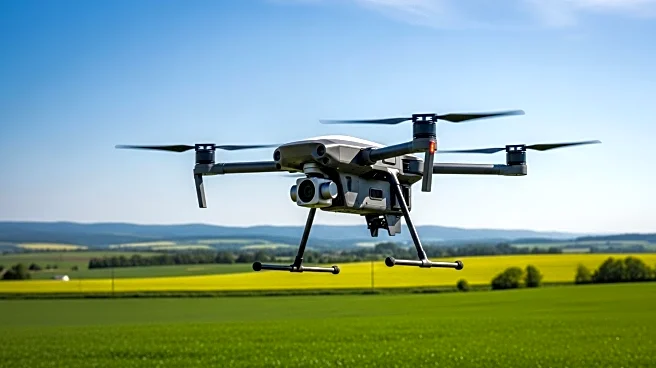What's Happening?
Recent data from the Agrotech Index, published by the Brazilian Association of Automation, indicates that the agriculture sector has seen significant advancements in automation technologies over the past five years. Crop farming has registered a 33% increase in automation, while livestock operations have seen a 29% gain. This progress is attributed to the sector's need for predictive tools to manage productivity challenges, particularly those related to climate. Technologies such as tractors, drones, and sensors are increasingly being adopted to enhance efficiency and sustainability in farming practices.
Why It's Important?
The adoption of automation technologies in agriculture is crucial for improving productivity and sustainability. As the sector faces external challenges like climate change, these technologies provide farmers with the tools needed to optimize operations and reduce environmental impact. The increased use of automation can lead to better resource management, higher yields, and reduced labor costs, benefiting both producers and consumers. This trend also highlights the growing importance of technological innovation in maintaining the competitiveness of the agricultural industry.
Beyond the Headlines
The shift towards automation in agriculture raises important ethical and economic considerations. While technology can enhance efficiency, it may also lead to job displacement for workers traditionally employed in manual farming tasks. Additionally, the reliance on technology necessitates investments in infrastructure and training, which could pose challenges for smaller farms with limited resources. The industry must balance technological advancement with the need to support rural communities and ensure equitable access to these innovations.











